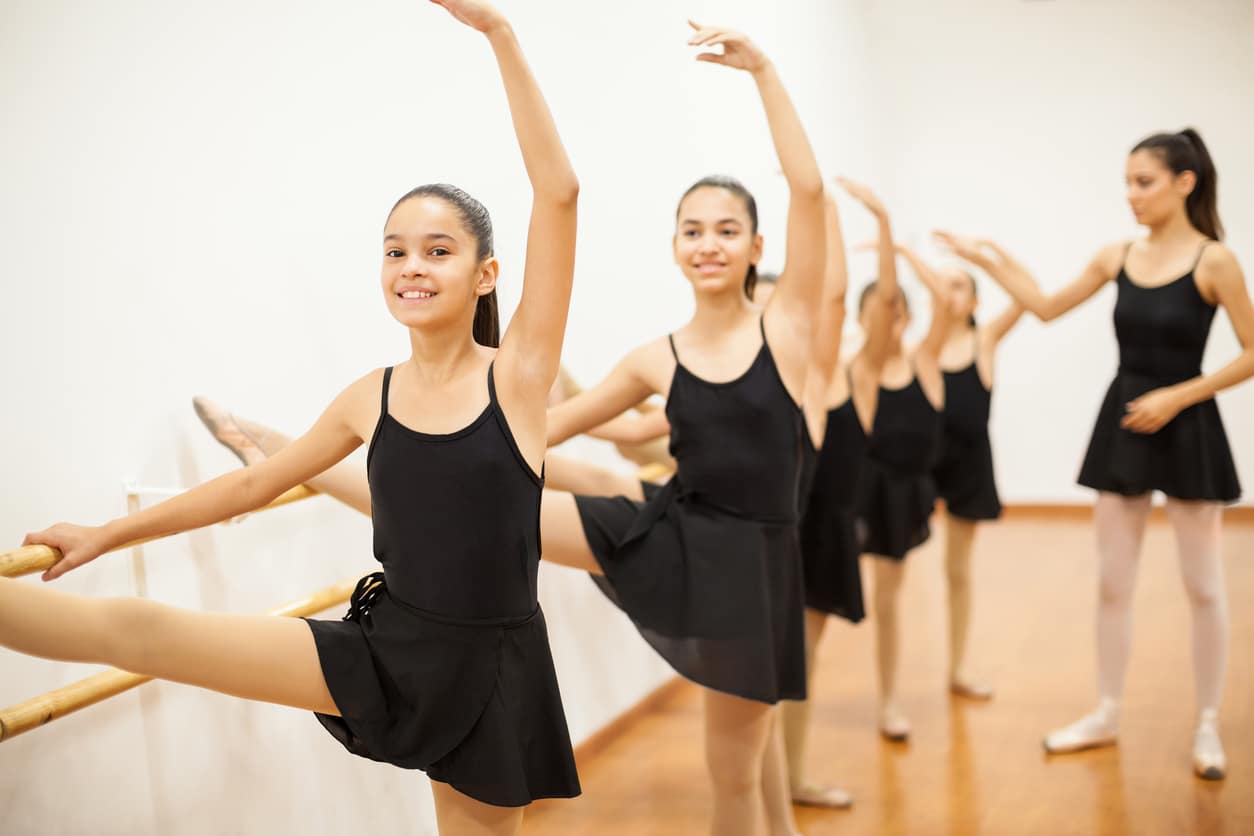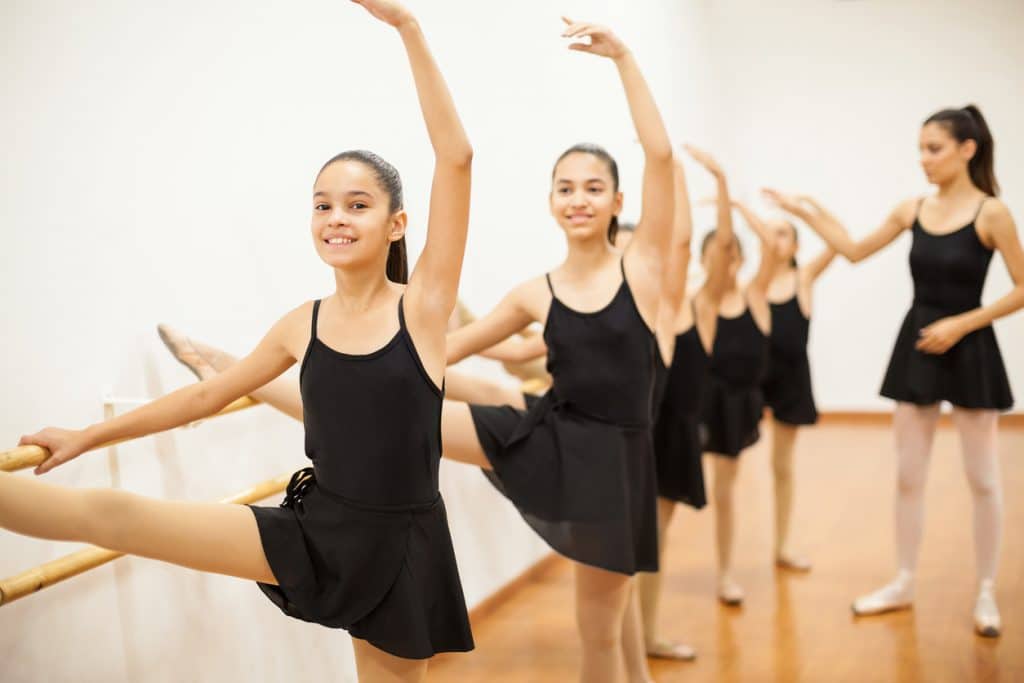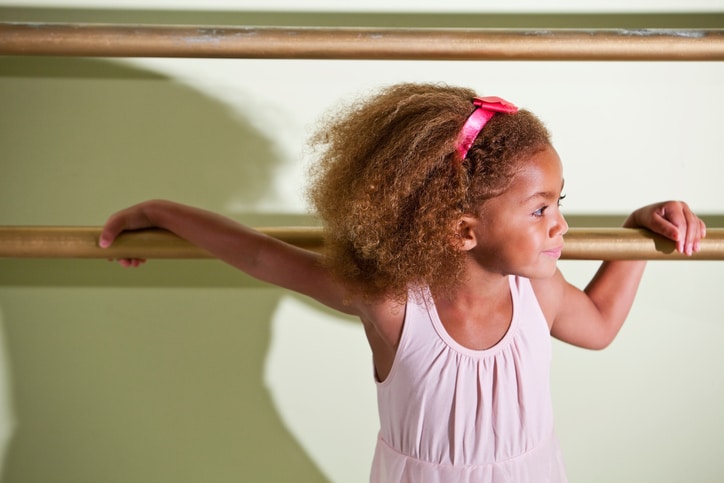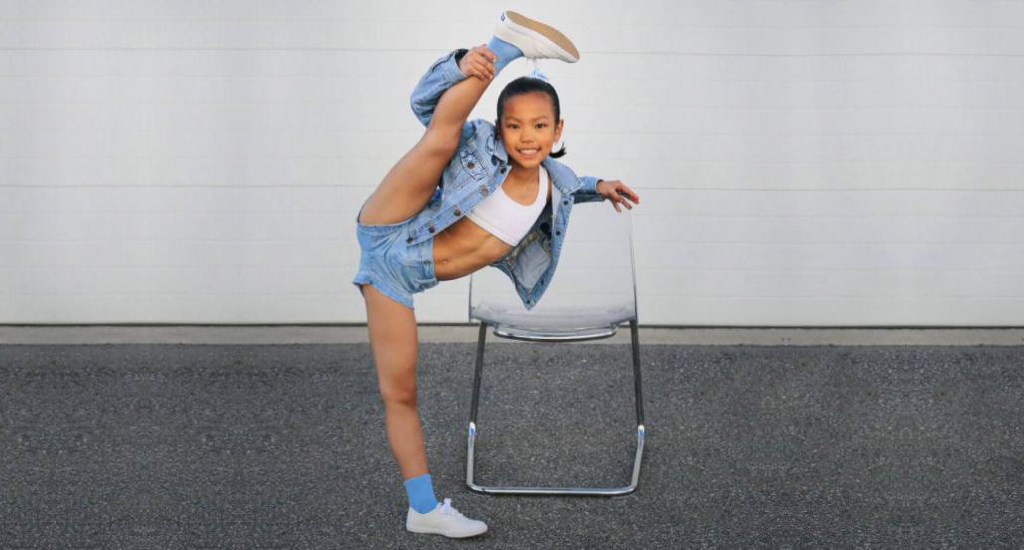
Reasons Why Kids Want to Quit Dance Lessons
Lack of Interest
One reason your child may have for wanting to quit their ballet or other dance lessons is that they’ve simply become uninterested. While some children lose interest in a dance they once had passion for, others may become bored as a result of not being challenged and that could be mistaken for lack of interest. Do a little investigating and try to find out whether your child genuinely has no interest in dancing anymore or if you should switch classes based on their ability—sometimes, when you take your child from a beginner class, where learning the basics may bore them, to a more advanced class, where their abilities will be challenged, their passion can be reignited.
Awkwardness
Your child is a lot more likely to experience a general phase of awkwardness if this is their first go at a dance class. From making friends to getting their body familiarized with the dance moves, this can be quit an uncomfortable time. Remember when you were in high school and wanted nothing more than for it all to be over? That’s probably what your child is feeling. Luckily, you know that it gets better. If feeling awkward is their main reason for dropping out, encourage them to stick with it a little longer—chances are, they’ll start to love it and forget they even wanted to quit in the first place.
Stage Fright or Social Anxiety
Most dance classes work towards a recital or some type of performance at the end of the session, which can intimidate some students. If this is the case, try to work through these fears and find a solution. Your child may love dancing but want to quit just so that they don’t have to go through with the end-of-year performance.
Bad Dance Instructor
Another reason your child may want to end their dance lessons is their instructor. Every instructor is different, and their teaching style may not align with what your child likes or sometimes they may be too hard on students. Depending on the situation, you may want to think about switching instructors or dance academies altogether—the last thing you want to do is compromise your child’s love of dancing because of an inadequate teacher.
Fear of Rejection
Humans, even young children, have the tendency to seek acceptance and avoid rejection or humiliation. In dance lessons, kids’ eyes are drawn to the most skilled student in the room and may immediately begin to doubt themselves. Before realizing it, self-doubt sets in and turns into a tangible fear of rejection, which can make kids want to drop out of classes.
New Dancer Anxiety
Children often need to learn new things from scratch, and this can bring on a lot of anxiety and fear. The good news is, everyone generally starts at the same place, so you can encourage your child with this in mind.
Bad Planning
Many students want to quit dancing because they don’t consider the work it will take. Parents also need to plan before signing up their child for classes. Do you need a babysitter for your other children? Have you considered the schedule of dance classes and will you be able to bring your child to all of them? There are solutions for these questions, but it takes careful planning beforehand to prevent unnecessary stress about dance classes. For dance to remain a priority in your child’s life, you should make sure you plan for it properly.
Too Much Practice
Dance is a physical skill and cannot be learned over night. It takes repetition and lots of practice to memorize the movements. New dancers and teachers can become frustrated when students don’t take time to practice. If your child finds they are practicing too much, talk to them and help them realize good practice skills are what will make them a great dancer and make it more fun.
Inconsistency
The fastest way for your child to get discouraged and want to quit early on is when there is inconsistency. Stopping and starting again further down the road, over and over again, may seem like fresh motivation, but it actually prevents consistent growth. Sticking to classes and not giving up or taking long breaks between lessons is vital to progress.
Bullies
Bullies should have no place in the classroom, but your child may be dealing with one in their dance class. This can have a serious impact on their decision to quit classes or want to be moved to a different one. If this is the case, speak with the instructor and seek an immediate solution.
Things to Do When Your Child Wants to Quit Dance Lessons
Talk to Your Child
Keep in mind that before coming to you about their desire to quit, your child has likely been asking themselves, “Should I quit the dance team?” for quite some time. Try your best to be understanding and figure out why exactly they want to quit. Depending on their reason, they may be a solution that you can propose and encourage them to stick with it.
Identify the Source of the Problem
Once you’re finally able to identify what drove your child to want to quit, it’ll be easier to figure out how to handle the situation. You can try to find different solutions or compromises if you’d like your child to continue, or if their reason permits you can feel confident in your decision to let them quit. Identifying the source of the problem is a main factor in making the ultimate decision.
Avoid Negative Labels Surrounding Quitting
Children learn by trying new things but if quitting is looked down upon in your household, your child may be fearful of trying new things, or may get stuck in activities they do not enjoy. By negatively labelling quitting, you will limit your child’s learning experiences and prevent the chances that they try and find an activity they truly love.
Find Alternatives to Quitting
Sometimes the desire to quit stems from challenges in the classes, rather than the dislike of it. If your child is quitting because of difficulties, you can speak with them about how to solve those problems so they can continue the sport. Some things you can do include the following:
- If your child is quitting because they don’t have enough time to spend with friends, suggest they stay with classes but plan ahead to hang out with friends on weekends.
- Help show you child that although quitting is an option, there are other ways they can problem solve first, before giving up.
- Make compromises with your child: If you paid for three months of classes and your child wants to quit after the first month, compromise that they should finish the lessons you paid for before they give up. Or, if they are dancing as part of a team, explain to them their role on the team, and how it would affect the team if they left. You can compromise with them, allowing them to quit after the season is over.
Remind Your Child You Are Still Proud of Them
Even if your child decides to quit, make sure they know that you are still proud of them and love them. The support will give them confidence to try something new in the future. You can compliment them on their critical thinking skills for making such a tough decision by saying, “I’m proud of you for thinking through this decision and looking at alternatives.”
Be Patient
You’ve probably spent a lot of money helping your child pursue dance classes, and you may be frustrated at them for wanting to quit. Try to remember what it was like to be their age and think about all the things your child might be feeling. Be patient with them, and try your best to encourage them to do the right thing, even if it means pulling them out of class altogether.
Talk with the Dance Instructor
Have a chat with your child’s dance instructor and listen to any feedback they may have. Even after speaking with your child, there may be some missing pieces of information; they may be embarrassed to tell you that they’re having a hard time making friends or that they just can’t seem to get the hang of their hip hop moves. Speaking to the teacher will give you a little more insight and help you make a decision that’s best for your child.
Make a Decision
After doing all you can to understand why your child wants to quit their dance lessons and thinking of possible solutions, it’s time to make a decision. Should you push them to continue or allow them to drop out? It really depends on each child’s individual situation—no one knows your child better than you do, and you should trust yourself to make the best decision for them.
Find Dance Classes That Support and Encourage Your Child
If you’re looking for dance lessons in Vaughan for you child that’ll want to make them never stop dancing, Performing Dance Arts is the place for them. With four different dance studios to suit whichever type of dance they’re interested in and passionate and experienced instructors to help them learn, there’s no better choice for dance classes in Vaughan. Take advantage of our amazing facilities and help your child cultivate their creative side! If you and your child would like to learn more, feel free to drop by the studio Monday through Friday between 4:00 p.m. and 9:00 p.m. and Saturday between 9:30 a.m. and 3:30 p.m., or contact us for more information.




